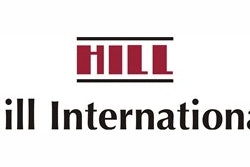Washington, D.C.—June 8, 2015—Legislation that would amend the federal Taft-Hartley Act to allow governors to intervene in port labor disputes rather than being required to ask the White House to do so was welcomed by the National Retail Federation (NRF), one of the world’s largest retail trade associations.
“The nation’s ports and the cargo that flows through them are the lifeblood of our economy,” NRF Senior Vice President for Government Relations David French said. “Our ports need to function and operate before, during and after any port labor contract negotiation, and this bill would make it easier to be sure that remains the case. The supply chain needs predictability to work and should remain free from any man-made disasters—be it delays, disruptions, slowdowns, shutdown or strikes.”
The Protecting Orderly and Responsible Transit of Shipments, or PORTS, Act was introduced by Senator Cory Gardner, R-Colo., a member of the Senate Commerce, Science and Transportation Committee. The bill would grant states new powers under Taft-Hartley so governors could examine the economic harm of port disruptions and petition federal courts to intervene. Under current law, that request could only come from the President.
“The economy and supply chain should never be held hostage to any one party in the negotiating process, be it labor or management,” French said. “Amending Taft-Hartley is one way we can ensure that international commerce keeps flowing. The introduction of the PORTS Act is a welcome sign that Congress is serious about reforming the process and dedicated to the future viability of U.S. ports.”
The bill has the support of over 100 business and trade associations including the Agricultural Transportation Coalition, Consumer Electronics Association, National Association of Manufacturers and U.S. Chamber of Commerce. These organizations representing farmers, retailers, transportation providers, wholesalers and other supply chain stakeholders signed a coalition letter organized by the NRF.
“This bill is critical to ensure that port disruptions resulting from labor contract negotiations do not negatively impact the U.S. economy,” the letter said. “We believe this is a tool that will help provide certainty to future negotiations.”













